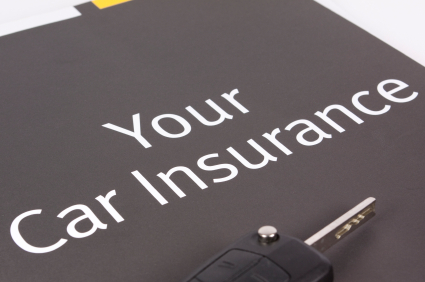by Administrator
12. June 2012 11:47

As with every financial planning endeavor, there is a right way and a wrong way to approach auto insurance planning. Understanding both the dos and don'ts of auto insurance planning will help you get the best policy for your money and avoid creating a plan that crashes and burns.
- Do get multiple auto quotes in order to find the best rates. Every insurance company has its own formula for developing auto insurance rates. While some may look upon certain risks generously, others may overcompensate for them. By getting a wide range of quotes you can ensure that you've explored every possibility and gotten the best value for your money.
- Don't buy insurance based on price alone. Insurance policies are not always created equal. The cheapest quote you get may not offer the kind of protection you need. Evaluate your auto insurance options by comparing the protections that each policy offers and weighing the cost against those benefits.
- Do ask for discounts. Discuss with your insurance agent all the different factors that could go into qualifying you for auto insurance discounts. Talk about any driver’s training courses you've taken, any policies you can bundle, any payment options that offer discounts, any safety gadgets built into your car, and so on.
- Don't misrepresent the facts. Telling little white lies, misrepresenting the truth on your insurance application and leaving out important facts could score you a cheaper insurance quote, but at the end of the day when the insurance company finds that you were not completely honest, your policy could be rescinded and you may be left uninsured.
- Do comply with the auto insurance regulations of your state. Make sure that you get all the required coverages so that you are in complete compliance and face no penalties.
- Don't allow the state to dictate how much coverage you have. While you must, at minimum, comply with the regulations of your state, don't assume that those minimums are actually enough protection for you and your family. Instead, discuss with your agent the financial risks you face after an auto accident and buy sufficient insurance coverage to protect against them.
- Do consider a deductible. An auto insurance deductible is the amount that you are required to pay out-of-pocket after an incident occurs. Auto insurance deductibles offer a great opportunity to help create a manageable premium balanced with insurance benefits that are legitimately helpful.
- Don't take on too much deductible. Auto insurance deductibles are per incident, which means that you must pay them each time you have damages rather than on a cumulative annual schedule. If you agree to very high deductibles and have multiple incidents each year, you could easily find your savings depleted.
There are many things to consider when designing your Killeen auto insurance policy and at Shawn Camp Insurance, we’re here to help you work through the difficult decisions.
by Administrator
21. April 2011 12:17
Auto Insurance
Why do you need auto insurance?
It's really all about protecting yourself financially.
- If you're in an accident or your car is stolen, it costs money, often a lot of money, to fix or replace it.
- If you or any passengers are injured in an accident, medical costs can be extremely expensive.
- If you or your car is responsible for damage or injury to others, you may be sued for much more than you're worth.
- Not only is having insurance a prudent financial decision, many states require you to have at least some coverage.
Questions to ask your agent
Your Independent Agent is an advocate for finding auto insurance that meets your specific needs. Here are a few things to consider as you prepare for the discussion:
- How much can you afford to pay if you get in an accident? (To keep premiums low you may want to have a higher deductible and be willing to pay more for repairs.)
- What is the insurance company's level of service and ability to pay claims?
- What discounts are available? (Ask about good driver, multiple policy and student discounts.)
- What's the procedure for filing and settling a claim? (Ask who to call and what happens after you file a claim.)
Texas

Texas is the second-largest U.S. state by both area and population, and the largest state in the contiguous United States. The name, meaning "friends" or "allies" in Caddo, was applied by the Spanish to the Caddo themselves and to the region of their settlement in East Texas. Located in the South Central United States, Texas is bordered by Mexico to the south, New Mexico to the west, Oklahoma to the north, Arkansas to the northeast, and Louisiana to the east. Texas has an area of 268,820 square miles, and a growing population of 25.1 million residents.
Due to its size and geologic features such as the Balcones Fault, Texas contains diverse landscapes that resemble both the American South and Southwest. Although Texas is popularly associated with the Southwestern deserts, less than 10% of the land area is desert. Most of the population centers are located in areas of former prairies, grasslands, forests, and the coastline. Traveling from east to west, one can observe terrain that ranges from coastal swamps and piney woods, to rolling plains and rugged hills, and finally the desert and mountains of the Big Bend.
At Shawn Camp Insurance Agency, a family-owned-and-operated business since 1976, we pride ourselves on helping you protect your home, automobile and business by offering exceptional service, quality products and unparalleled customer support. Contact us at (800) 212-2641 for a free Texas auto insurance quote or visit our office.
d8ca598b-7115-4b01-b20b-296f3ee42470|0|.0
Tags: insurance, auto, car, automobile, texas, quotes, online, copperas cove, killeen, temple, gatesville

